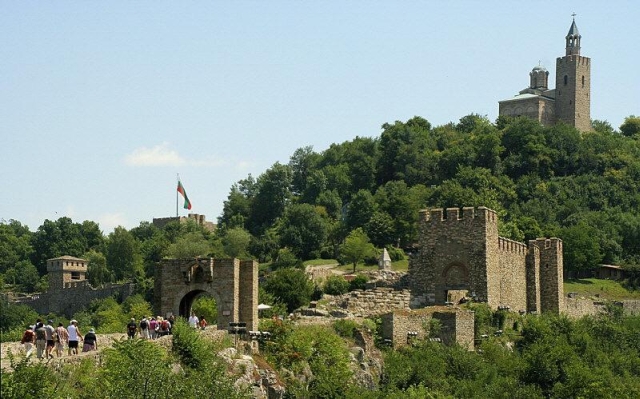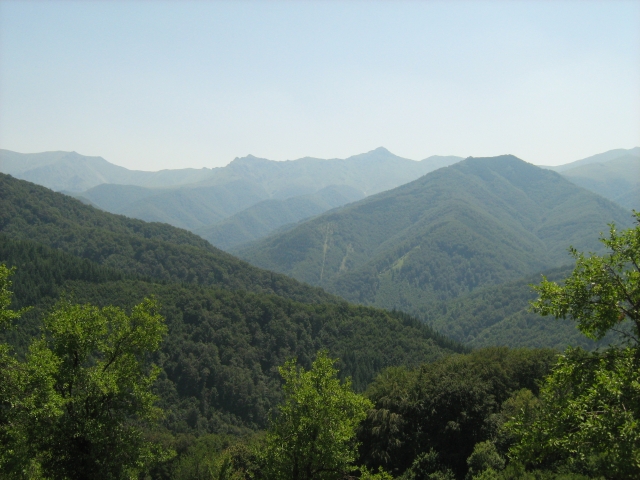Veliko Turnovo and the Stara Planina Mountains
- on 01.30.09
- Bulgarian properties articles
- No Comments
Central Rural Areas
Just a few years ago, the first wave of foreign buyers was pretty much restricted to tourist hot spots such as the Bulgarian black sea coast and the Bulgarian ski resorts. Nowadays there is not a corner of rural Bulgaria where a British person has not bought a house. It would be impossible to give details of all the country’s rural regions, so lets focus on the most popular and up-and-coming areas. It includes the inland region of Veliko Turnovo and the Stara Planina mountains; the town and its surroundings have become the most popular area for inland property in Bulgaria – and prices have reacted accordingly. This section also covers the Rousse and Danube valley region, which is gaining popularity for more discerning buyers who wish to escape the ‘Costa del Sol’ mentality of some of the more popular areas.

Veliko Turnovo and its surrounding villages have become a mecca for Brits drawn to rural Bulgaria. Veliko Turnovo or ‘Great Turnovo’ is also known as the city of kings and is the jewel in the crown of the Stara Planina mountains. The travel writer Philip Ward wrote that ‘Veliko Turnovo exceeds its reputation in terms of beauty, grandeur and strangeness’. Le Corbusier praised Veliko Turnovo for its ‘organic’ architecture, and the Prussian general Helmut von Moltke is quoted as saying, ‘I have never seen a town in a more romantic location.’ The town of Veliko Turnovo is listed by the Lonely Planet guide as one of the top 10 places to visit in eastern Europe, ranking it alongside Prague, Krakow and Transylvania.
The ancient citadel of Tsarevets forms the focal point of the city. The ancient houses and cobbled streets are perched on cliffs overlooking the winding river Yantra, which flows north into the Danube some 100km away. One can stand in the centre of the town and have views to the thick, forested hills beyond, and to snow-covered peaks of the Stara Planina mountains in the distance.
The region is particularly rich in cultural and Orthodox Christian monuments. There are 18 monasteries within the Veliko Turnovo region, eight of which are located within 10km of the city. The best examples of this architecture are the Hadji Nikoli Inn, the Tsarevets Fortress, St Constantine and St Helena Church, and the Church of the Forty Holy Martyrs. Veliko Turnovo has long been an attractive site for a number of Bulgarian and foreign artists because of its natural beauty and unique landscape.

History of Veliko Turnovo
Veliko Turnovo is one of the most ancient cities in Bulgaria, with historical sources dating back to the 13th century bc with evidence of Thracian settlements. During Roman times the place became the most important fortified city in the region, and remained so until the 5th century ad. In 1185 the two Boyar brothers Peter and Assen led a rebellion against the Byzantine rule in Veliko Turnovo. The revolt was successful, and Turnovo was proclaimed the capital of Bulgaria. The town was a popular crossing point for Crusaders on their way to the Holy Land. From time to time they caused so much trouble that they were locked in the castle and made to promise to behave1 themselves – not so different from some of the modern property invaders descending on the town today. In the 15th century the city was taken and held by Ottoman forces, and the castle remained in use by the Ottomans as an important garrison. During the Second World War it was used as a POW camp.
The 1960s Bulgarian film The Peach Tree is very evocative of Tsaravets and Veliko Turnovo during this time. After the Liberation from Turkish rule, the Constituent Assembly of the newly freed state was gathered in Veliko Turnovo and the first democratic Bulgarian constitution was approved. After the start of’the Changes’ in 1990 (see p.14), the first democratic parliament after Communism gathered in the same hall as the one in 1879 as a symbol of continuity between the Bulgarian democratic traditions.
Leave a Reply
You must be logged in to post a comment.